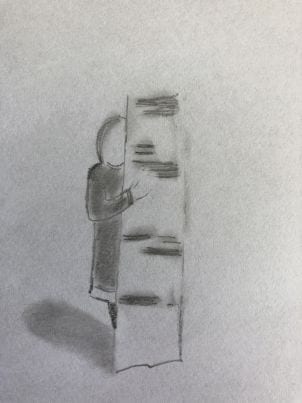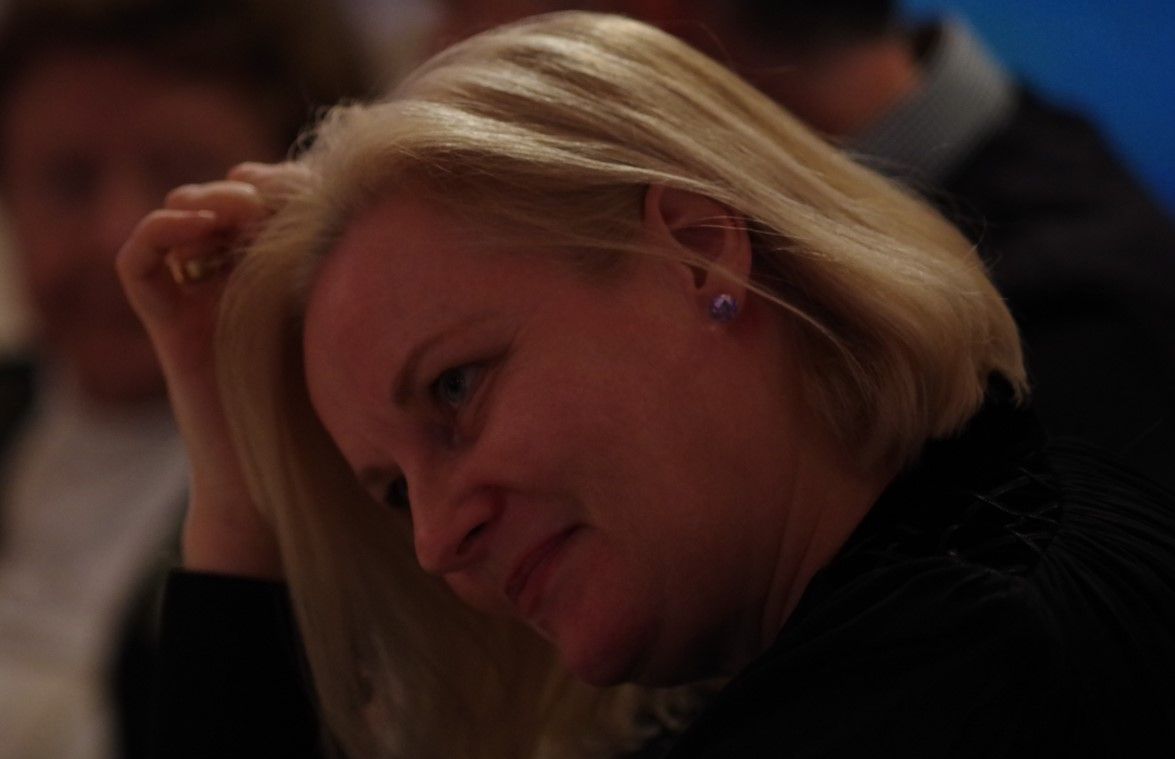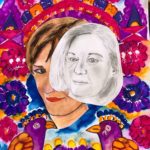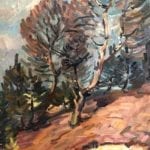A strong-willed, beautiful woman with a message
Frida Kahlo
Magdalene Carmen Frieda Kahlo y Calderón
6 July, 1907 - 13 July, 1954
Viva la Vida!
Unimaginable pain and the deepest disappointment give rise to unbridled creativity. Frida Kahlo succeeds not only in preserving her joy in life, but in passing it on. Her last painting is entitled "Viva la Vida" - Hurray for Life! Who is she?
Family tree
Frida Kahlo says her father, Carl Wilhelm Kahlo, had Hungarian/Jewish roots. According to a recent biography, he descended from a Lutheran German family from Pforzheim and Frankfurt. Not getting along well with his stepmother, Wilhelm emigrated to Mexico in 1890 and established himself as a photographer. His first wife Maria dies in 1897 and he marries Matilde Calderón y Gonzalez, Frida's mother.
Frida is his favorite
In 1904 he built a house where Frida was born in 1907 - the Casa Azul. Today it is an artist museum. Later she changes her birth year to 1910, the year of the Mexican Revolution. She wants her life to begin with the new Mexico.
Wilhelm - called Guillermo, is the father of six children, but Frida is his favourite. That's why he teaches her to see the world through the eyes of a photographer. She learns to observe closely, take photos, develop and retouch them.
She wants to break out
At the age of six, Frida suffers from polio and is left with a shorter right leg. This does not stop her from doing a lot of sports, like swimming. Frida enjoys a very good education at one of the best Mexican schools - Escuela Nacional Preparatoria. She has big plans. Frida wants to become a doctor. She wants to break out of the typical world of women at that time. From her mother, who is illiterate, she nevertheless learns handicrafts and how to run a household.
Broken instead?
In 1925, Frida is the victim of a serious bus accident. In the process, a bus stop pole pierces her pelvis. This massive injury and resulting body traumas lead to thirty-two operations in twenty-nine years.
To stabilize her spine, she has to wear very constricting plaster corsets again and again, which have nothing in common with the medical corsets of today. Artificial stretching of the spine also leads to no improvement. On the contrary, she is tormented by permanent pain that is almost unbearable. Pain everywhere and constant exhaustion accompany her from now on through the rest of her life.
I have included a talk by Dr. Ginerva Liptan in my post on food (in the English version). Here she talks about her own path and about her identification with Frida Kahlo. I was very touched by the film. (English)
Your own revolution
Like the athletic young girl once, Frida does not let this terrible fate get her down. This is the birth of her painting. Through her gifted hands and her strong and clever head, she finds a way to counter the many physical blows that life deals her and, on the one hand, to rebel against her body, which makes it impossible for her to live the life she wants to lead. Therein lies her own revolution and her survival strategy. She gives expression to her deep physical and psychological injuries. Her visual language is called surreal.
Frida Kahlo keeps her radiance
On the other hand, it always remains important to Frida to give beauty to her body, to dress beautifully and colorfully. She strongly expresses her solidarity with the Mexican Revolution, and she flaunts this by often donning the Mexican costume. Elaborate hairstyles frame her striking face, and Mayan-style jewelry adds to the overall dazzling appearance. Sometimes Frida paints her body. Although her body causes her so much pain, she wants to make it beautiful, even for Diego. She is and remains a radiant person and captivates many people.
Refugees of fascism and displaced persons from Europe meet in their blue house.

She loves and lives passionately
Diego Rivera, to whom she is married twice, is her great love, although she counters his infidelity after deep disappointment with relationships with outstanding personalities of the art scene of her time as well as with politicians. She risks her life to have children with him. She is not granted the privilege of being a mother. Diego has a child with her sister. Another deep wound in her soul.
From 1940, her life takes a turn for the worse. She has to stay in bed for many months and paints there with the help of a special construction. Shortly after a bout of pneumonia, she wants to take part in a demonstration. Her doctor advises her against it. She does not let herself be dissuaded from her plan and dies a few days later.
My favorite picture
One of the most famous paintings of her is The Broken Column. Pain is represented by many nails in her naked torso. Her torso is separated by a cleft that resembles an earthquake crack. This could indicate the preponderance of surgeries. In this cleft there is a column with cracks. The white straps of the torturous corset accentuate her body. A cloth is wrapped around her hips, which
reminds of Christian martyrdom.
Her gaze is full of dignity and directed forward. Tears run down her cheeks. Yet her features refuse to give in to weeping. The endless and barren landscape in the background suggests great suffering, both physical and emotional. This is roughly how Hayden Herrera describes the image in his book A Biography of Frida Kahlo.
Fibromyalgia
At that time, the diagnosis of fibromyalgia did not exist. More recent studies find evidence for the diagnostic criteria of a post-traumatic fibromyalgia syndrome with generalised pain, permanent exhaustion and resistance to therapy. This is the core symptomatology of fibromyalgia Explanation The development of fibromyalgia syndrome after physical and emotional trauma is well known. In retrospect, the diagnosis can only be suspected and not proven. It is based on her life story, accounts, diary entries and medical records. In one diary entry, Frida Kahlo sketches eleven arrows pointed at her body, indicating tender points. These were used for diagnosis until 2013.
There is no doubt that she suffered from permanent, severe pain. Fibromyalgia sufferers and all those who suffer from chronic pain can relate to this and can find themselves in many of her pictures.
Together with my husband I visited the exhibition Mexicanidad in Schwäbisch Hall in 2012. It showed pictures, photographs and pieces of clothing of Frida Kahlo. I could see her pain, suffering but also her pride and strong will, and felt inspired by it.
What can we take away from her life story ?
Passion
Frida was both physically passionate and passionate in her aspirations to be beautiful - inside and out. She cultivated a colourful, despite everything, life-affirming attitude. We don't have to be so hard on ourselves that we don't allow ourselves to cry. We can improve our relationship with our body by stopping blaming it for not functioning well. Our body is still a miracle worker. It is constantly trying to compensate for what can no longer be done and it still does a lot of things flawlessly. We just don't see it. That is where we should look.
Perseverance
Frida was permanently plagued by pain and exhaustion. Nevertheless, it was so important to her to express her physical and mental suffering that she had a device installed above her bed (see video). With it, she could have a canvas stretched diagonally in front of her head and paint while lying down. She did not give up. Sometimes we despair of not being who we used to be. We feel inferior because we can't do everything like we used to. Yes things change, but we can also change. We can change by actively choosing to look at what else is possible. We can find ways to enjoy activities we enjoy in a different way despite obstacles.
Community
We know how a chronic illness can be isolating. Certainly, Frida also sometimes felt the need and the necessity to withdraw. She socialised and provided a meeting place in her house for many illustrious personalities. She takes part in a demonstration almost at the end of her life. She wants to be there. It is also very important for us to maintain contact with others.
Hope and comfort
When we look at her pictures, we can empathise with her pain because we know pain. She was able to be beautiful and create beauty despite everything. She presents us with a colourful world. There is suffering and pain, but also defiance, tenacity, courage and sovereignty. Let us learn something from it!
"Frida was grace, energy and talent combined in one of the beings that most excited my imagination. Diego and Frida were part of the spiritual landscape of Mexico ..."
Luis Cardoza y Aragon
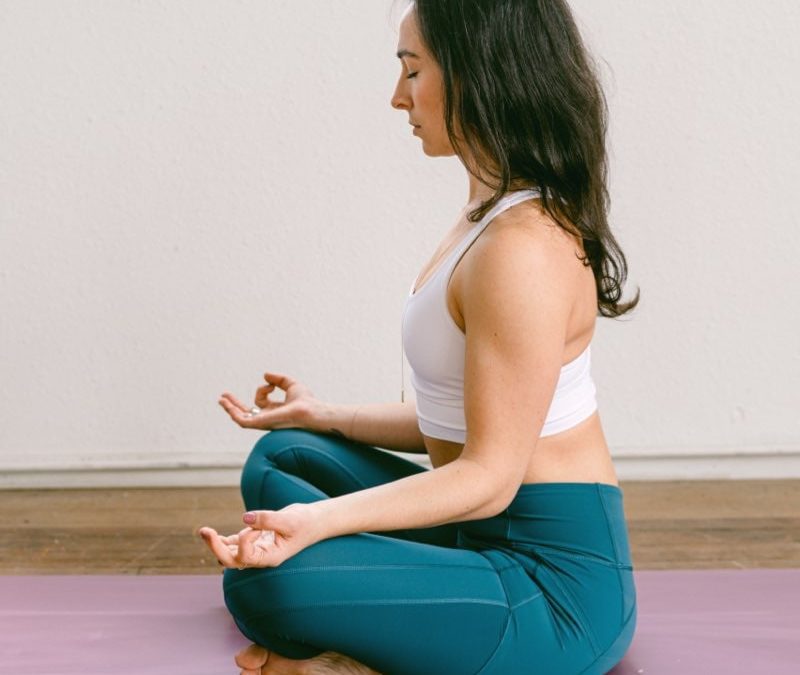
Am I sick or healthy?
Am I sick or healthy? What is health? What does health feel like? In the past I didn't understand why people wished me "above all health" on my birthday. They knew what they were talking about, I didn't yet. I felt healthy when I was young. 2020...

What you are seeing is not me!
Fibromyalgia is invisible, it does not leave any traces on the skin, does not cause wounds that others can see. It's a lonely, desperate pain.

Opioids vs. acceptance and commitment therapy
Some patients who take opiates for their pain now experience that medication is much more restrictive.
Pictures:
Photo by adrian alva on Unsplash
Sources:
Caldwell, E. C. C. (2018, 28 April). Did Frida Kahlo Suffer From Fibromyalgia? daily.jstor.org. https://daily. jstor.org/frida-kahlo-suffer-fibromyalgia/
Frida Kahlo. (n.d.). www.fembio.org. Retrieved 1 February 2021, from https://www.fembio.org/biographie.php/frau/biographie/frida-kahlo/
Frida Kahlo. (2021, January 30). ..wikipedia.org. https://de. wikipedia.org/wiki/Frida_Kahlo
Martinez-Lavin, M. M.-L., Amigo, M.-C. A., Coindreau, J. C. & Canoso, J. C. (2000, March). Fibromyalgia in Frida Kahlo's life and art. www.researchgate.net. https://www.researchgate.net/publication/230184689_Fibromyalgia_in_Frida_Kahlo%27s_life_and_art
Vann, M. R. V. (2018, February 7). Did Artist Frida Kahlo Have Fibromyalgia? www.everydayhealth.com. https://www.everydayhealth.com/fibromyalgia/did-artist-frida-kahlo-have-fibromyalgia.aspx
